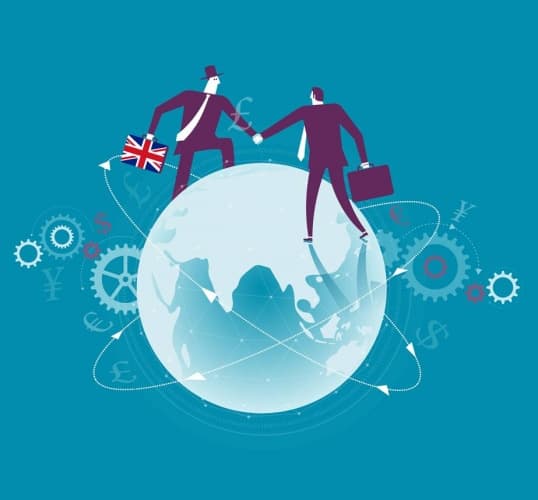In developing manufacturing strategy it’s sometimes useful to ask the simplest questions. But these can be the hardest to answer.
For example, The Sainsbury Management Fellowship scheme awards bursaries to bright young engineers to study MBAs at the top 14 international business schools in the world. The idea is that the exposure to some of the best international teaching environments on the planet will enable them to return to the UK and increase the competitiveness of the UK economy. Compared to other countries, we don’t have enough engineers, and in general, people who know how to get things made, running our UK companies.

Initially the scheme was for UK engineers only. However today, the definition of what is British has become blurred by membership of the EU, the globalised economy, and by what decisions an individual might make in the future. Someone might not be born here, but they might work here and add as much value as anyone else to the economy. And whilst a Brit may go, or be sent, overseas and never come back, if they are working for a British company there then that should still be OK shouldn’t it? How about if the company is not British but has substantial UK operations? So the logic trail leads to 2 important strategic questions: What defines a company as “British”? And, perhaps more importantly, does it actually matter anyway?
”What defines a company as “British”? And, perhaps more importantly, does it actually matter anyway?
Let’s perhaps start with asking what is a company? My old law professor Annuziata used to say a company is a collection of contracts. That’s possibly less than useful, even if accurate. Of course at the heart of every organisation is a constitution that sets out the rules governing how the company can interact with the outside world and organise itself internally with its governance. Those rules will be written in the law of a particular jurisdiction. In the UK, the most common form for companies is written in the laws of England and Wales. That could be one definition.
Is it where the HQ address is? Probably not, since today companies minimise their tax bill by manipulating their tax domiciles and related tax law. (In fact, we’re seeing a global shift of wealth from government administrations to private rich individuals and companies - but that’s a topic for another day.)
How about the factory address? But many organisations manufacture overseas. Or how about where the bulk of the employees are based?
Another definition might be who owns it. A company may be founded and operate in the UK but what if it has an overseas owner? We’ve seen billions of pounds of “investment” in the UK over the last 20 years, where overseas investors from countries such as Spain and China have either taken majority stakes or have outright purchased UK organisations. I was only slightly surprised to learn last year that my regional UK electricity network supplier is 100% owned by a Chinese company.
We’re getting closer to a working definition.
I believe the most useful definition of a company’s nationality, even in today’s global economy, lies in the question of where the reinvestment decisions are being made and who usually profits from that decision. By reinvestment I mean either putting the money back into the company somewhere, or alternately deciding to release it to the owners or shareholders as dividends.
A bit of accounting theory is useful here. A revenue centre is defined as an entity that is managed to maximise revenues. Cost centres are managed to minimise cost, profit centres to maximise profit by raising revenues and/or reduce costs. However, investment centres are longer term, looking at long term ramifications of decisions made today in order to follow long term opportunities, as required.
”I believe the most useful definition of a company’s nationality, even in today’s global economy, lies in the question of where the reinvestment decisions are being made and who usually profits from that decisio
You can probably see where I’m heading. The important point here is all about R&D. If the reinvestment decision is made in a way to benefit the UK in the long term, then for me, that makes it a primarily UK organisation. However, if the decision is made by, or to benefit, overseas territories then it’s no longer a UK organisation. The risk here is that, perhaps to support our balance of payments deficit, companies in the UK are bought by overseas owners who then see them as cash cows and profit centres to be ‘milked’, rather than investment centres for long term commitment. We’ve seen disappointments with the take over of companies such as Cadburys, but we’ve also seen the magnificent resurgence of Rolls Royce and Bentley, so overseas investment can work.
The UK routinely outpunches its weight in R&D (see graph in last month’s blog). That’s why I think it’s important we have some criteria to define what a company’s country is today. We can then apply the criteria when we welcome outside investment to ensure it supports our long term needs for a better future for all.

Glasgow trial explores AR cues for autonomous road safety
They've ploughed into a few vulnerable road users in the past. Making that less likely will make it spectacularly easy to stop the traffic for...